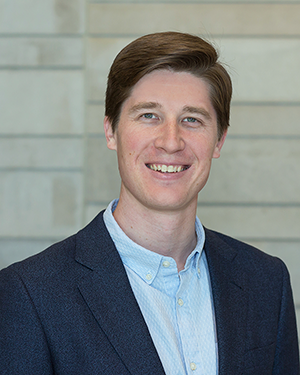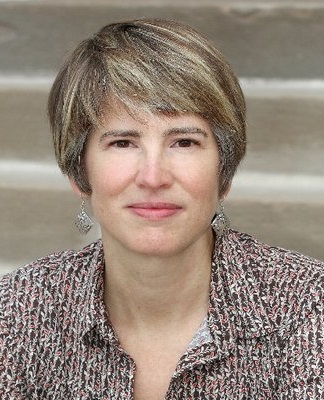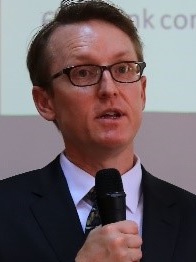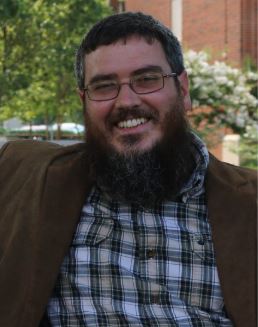Thank you for your message. The IPPA team will get back to you shortly. You first need to login here.

International Scholars
International Scholars
The 2019 International Spring School on Public Policy Denver featured five distinguished international scholars:

| William L Swann is an assistant professor in the School of Public Affairs at the University of Colorado Denver, where he is affiliated with the Workshop on Policy Process Research (WOPPR). His PhD in public administration is from Florida State University. His research focuses broadly on sustainability policy, public management, and collaborative governance. His research mostly examines the motivations, constraints, and consequences associated with sustainability policies and programs in local governments, and can be found in the Journal of Public Administration Research and Theory, Public Administration, and Urban Studies, among others. He is currently involved in research teams studying the nexus of food, energy, and water (FEW) systems in local development; performance management in state government; and local policy approaches to the opioid crisis. He teaches graduate courses in quantitative research methods and organizational management |

| Paul Cairney is Professor of Politics and Public Policy, University of Stirling, UK (@Cairneypaul). His research interests are in comparative public policy. His research spans comparisons of policy theories (Understanding Public Policy, 2012), methods associated with key theories (Handbook of Complexity and Public Policy, 2015), international policy processes (Global Tobacco Control, 2012), and comparisons of UK and devolved policymaking. He uses these insights to explain the use of evidence in policy and policymaking, in one book (The Politics of Evidence-Based Policy Making, 2016), several articles, and many, many blog posts: https://paulcairney.wordpress.com/ebpm/ If you only have time for one article, make it How to communicate effectively with policymakers. Cairney was funded (2013-15) by the UK Economic and Social Research Council to compare policymaking processes in the UK and Scottish governments, focusing on areas such as prevention. He is currently funded by the European Research Council’s Horizon 2020 programme ‘IMAJINE’ to understand how to learn from – and transfer within the European Union – policies designed to reduce inequalities’. |

| Jennifer Dodge is Associate Professor in the Department of Public Administration and Policy at Rockefeller College, University at Albany – SUNY, and Co-Editor of Critical Policy Studies. An expert in qualitative research methods, Jennifer’s research focuses on the interpretation of policy conflict, policy advocacy, and the role of civil society organizations in supporting citizen participation in policy discourse, mostly in the environmental field. She applies critical theoretical perspectives to explain how policy conflict affects decision making and policy formulation, and how conflict can be used productively to create more just and sustainable policy. She has many years of experience doing participatory research with social change nonprofit organizations and formerly conducted evaluation research at MDRC. She has published widely in public administration, public policy and nonprofit journals and edited books, and received a BA in Sociology from Skidmore College and a Ph.D. in Public Administration and Policy from The Wagner School at New York University |

| Dr. Weible received his Ph.D. in Ecology from the University of California Davis. He earned a Master in Public Administration and a Bachelor of Science in Mathematics and Statistics from the University of Washington. His research and teaching center on political conflict and concord in relation to public policy issues. He co-directs the Workshop on Policy Process Research (WOPPR) and is currently serving as the Director for the PhD Program for the School of Public Affairs at the University of Colorado Denver. Dr. Weible co-edited Theories of the Policy Process and Policy Debates in Hydraulic Fracturing . He teaches courses in environmental politics, policy processes, policy analysis, and research methods and design. Recent and current research include studying multi-stakeholder collaboration processes in aquaculture partnerships, assessing policy designs and improving outcomes in organic farming, and analyzing the politics of unconventional oil and gas development using hydraulic fracturing (fracking). |

| Dr. Workman is an Associate Professor in the Department of Political Science at the University of Oklahoma. He is also a research faculty member at the Center for Risk and Crisis Management and a fellow of the Center for Intelligence and National Security. He was previously an Assistant Professor in the Department of Government at the University of Texas and Associate Director of the U.S. Comparative Agendas Project, where he remains a faculty affiliate. His research and teaching interests lie in the fields of American politics, public policy, and research methodology. More specifically, Professor Workman studies bureaucracy and regulatory politics and policy. Professor Workman is interested in how information is generated in the policymaking system, and how policymaking institutions process information, leading to various degrees of system adaptability. Professor Workman's (2015) book, The Dynamics of Bureaucracy in the U.S. Government: How Congress and Federal Agencies Process Information and Solve Problems (Cambridge University Press) focuses on the regulatory process as generating information that shapes governmental problem-solving. His work has also appeared in the Policy Studies Journal and the Journal of Public Administration Research and Theory. Dr. Workman's current research projects examine how policy analysis in congressional bureaucracies shapes both regulatory agendas and the types of information bureaucracies generate. He is also examining food security as a boundary-spanning policy problem encompassing both domestic and national security considerations. Dr. Workman is currently working on collaborative projects examining the dimensionality of public policy in western democracies and how science is used in regulatory policymaking. Professor Workman teaches courses on bureaucracy, regulatory politics, public policy, agenda-setting, and quantitative research methods. |




